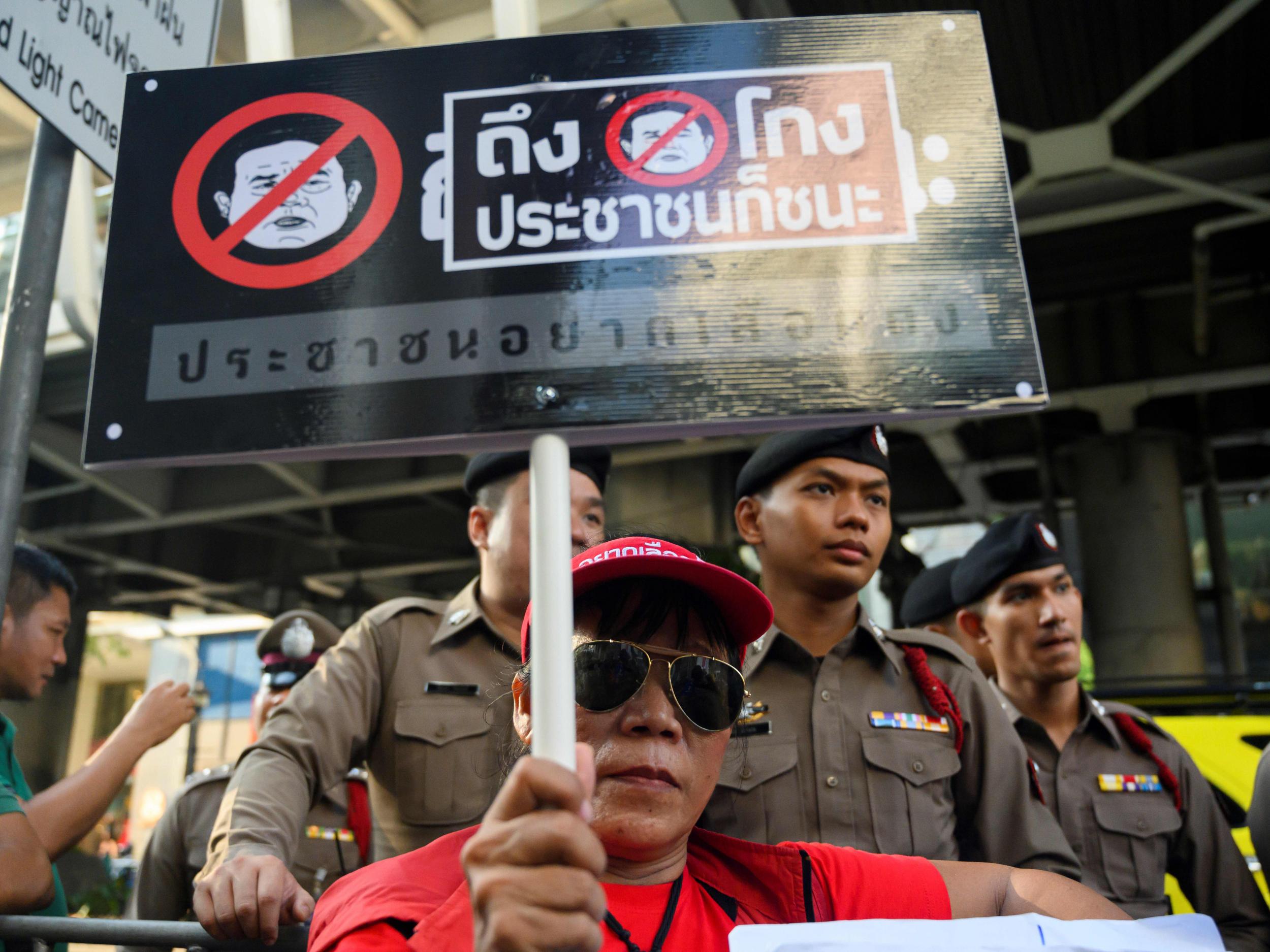A military dictatorship in Thailand is clinging onto power – with the tacit support of the western powers
The junta fixed the elections utilising the usual repressive tactics. The country’s future now hangs in the balance

Thailand held its long-delayed general election two months ago, the first since the military dictatorship seized power in a coup by ousting the elected government five years ago. This election was supposed to mark the Kingdom’s return to democracy. Dozens of new parties rushed to register, all seeking to court the votes of millions of Thais, including many first-time voters.
For the international community, the election constituted an important step towards a return to civilian rule. Based on the junta’s promise to deliver free and fair elections, the European Union had even decided to resume political contact “at all levels” with Thailand in 2017.
The election that took place, however, was anything but free and fair. The junta used every tool in its despotic arsenal to rig the election in its favour. In 2016, it put in place a new constitution – the 20th since 1932 – tailored specifically to tighten the military dictatorship’s grip on the country. It created an incredibly complex electoral system designed to prevent the country’s powerful opposition parties from, once again, winning an absolute majority in parliament.
The new constitution gave the generals the power to appoint all 250 senators in the upper house, who then vote to elect the prime minister. The list of appointed senators was recently released, and to nobody’s surprise, it is made up the junta’s cronies and members of the army.
On the day of the election and the days that followed, it became clear that the military government’s manipulation extended to vote buying, ballot stuffing, and countless other irregularities. Thanks to a partnership with the Facebook-based activist CSI LA, the pro-democracy organisation FORSEA of which I am a co-founder, was able to crowdsource and document thousands of instances of voter fraud sent by concerned citizens from all over the country. I compiled this evidence in a report published earlier this month, which offers an unprecedented and unequivocal insight into the scale of the election fraud.
Despite the junta’s efforts, preliminary results showed that a coalition of seven pro-democratic opposition parties won a majority in the lower house of parliament. Pheu Thai, the party backed by former prime minister Thaksin Shinawatra, won the largest number of seats in the lower house. More surprisingly, the upstart Future Forward party, created just over a year ago, won over six million votes, becoming the third political force in the country.
Faced with this embarrassing result, the junta turned to greater repression. The leaders of the Future Forward party, in particular, became the target of trumped-up charges. The party’s leader, Thanathorn Juangroongruangkit, will be tried before a military tribunal that will undoubtedly find him guilty. Indeed, Thanathorn is now facing disqualification as an elected member of parliament after the Election Commission accused him of violating the election law over his holding of shares in a media company.

It took the Election Commission six weeks to review and validate the final election results. Failing to reveal how it calculated the votes, it ensured that opposition parties did not get a majority in the lower house. Amid confusing declarations by the commission and threats of legal challenges, parties are now attempting to form coalitions to break the deadlock.
In the past week, the competition to form the next government has intensified. The pro-junta Palang Pracharat party has claimed the right to begin forming a government based on the official results of popular votes. Meanwhile, Pheu Thai party is attempting to form an anti-junta coalition and is offering the premiership position to smaller parties to unlock the political stalemate. Thailand is yet again facing a long period of political chaos and uncertainty.
Lurking beneath the electoral crisis is the powerful monarchy. Despite its confined role as stipulated in the constitution, the Thai monarchy has often intervened in politics to strengthen its own position, and King Vajiralongkorn seems to want to play an active role in politics. He interfered to ensure amendments were made to the draft constitution. Most recently, he attempted to influence voters to by advising them to vote for “good people”, a message most people interpreted to mean those aligned with the junta. He also approved the list of senators handpicked by the military government amid a public outcry. The monarchy shares some of the responsibility for the ongoing crisis in Thailand, too.
Far from restoring democracy, this election was designed to prolong the military rule. Aside from lukewarm criticism by the US and EU urging the junta to resolve election irregularities, the international community has by and large greeted these results with deafening silence and complacency.
The international community should firmly contest the results, condemn the manipulation of the vote orchestrated by the military dictatorship, and uphold relations with the Thai government only on the condition that elections are truly free and fair. In these troubled times dominated by populism, hatred and violence, it has never been more important to support democracy in Thailand.
Pavin Chachavalpongpun is an associate professor at Kyoto University’s Center for Southeast Asian Studies and founding member of democracy and rights NGO ‘Forces of Renewal Southeast Asia’
Join our commenting forum
Join thought-provoking conversations, follow other Independent readers and see their replies
Comments
Bookmark popover
Removed from bookmarks